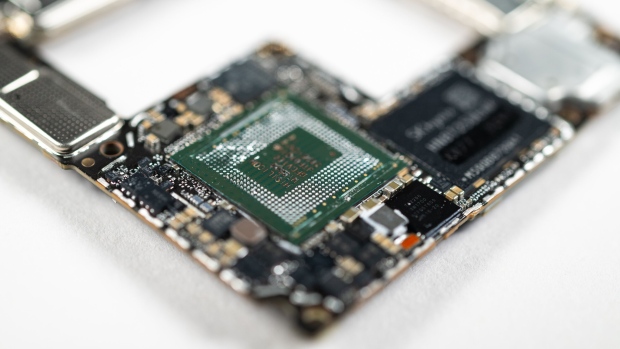Oct 23, 2023
Ex-ASML Staff Accused of Theft Went to Work for Huawei, NRC Says
, Bloomberg News

(Bloomberg) -- A former ASML Holding NV employee accused of stealing data from the maker of the world’s most advanced chipmaking machines went to work for Huawei Technologies Co., according to Dutch newspaper NRC.
ASML said in February that a former employee in China stole data about its technology, without disclosing further details. The ex-worker stole data from a software system that the corporation uses to store technical information about its machinery, Bloomberg reported earlier this year.
The move comes as the US seeks to prevent China from accessing semiconductor technology that could give it a military edge. It’s the latest episode in an escalating trade war that has seen Huawei become a target over concerns about its ties to the Chinese government.
The former employee last year worked for some time at Huawei after his abrupt departure from ASML, according to NRC which cited unidentified sources. ASML declined to comment.
It’s unclear whether the person is still working for Huawei. A Huawei spokesperson didn’t immediately respond to a request for comment.
Read More: ASML’s Big Bet on China Is Starting to Backfire Over Data Thefts
The individual, who was based in China, was identified as having potential ties to a Chinese state-sponsored entity and stealing the data on its behalf, people familiar with the company’s probe had told Bloomberg. The entity was one that has previously been linked to intellectual property theft, said the people, who didn’t provide the name of the group itself.
ASML occupies a pivotal role in the global chip supply chain. It has a monopoly on advanced extreme ultraviolet, or EUV, lithography systems that are indispensable to producing the most cutting-edge chips in the world, and it also supplies deep ultraviolet lithography machines needed to make more mature semiconductors.
Huawei quietly introduced a new smartphone in August powered by an advanced, 7-nanometer processor. A teardown of the device revealed the chip was produced by a Chinese company, demonstrating manufacturing capabilities well beyond where the US had sought to stop its advance.
The achievement cast doubt on Washington’s ability to thwart Beijing’s technological ambitions, and spurred political pressure for the Biden administration to impose more sanctions on Huawei and its chipmaking partner, Semiconductor Manufacturing International Corp., one of the biggest customers of ASML in China.
©2023 Bloomberg L.P.





